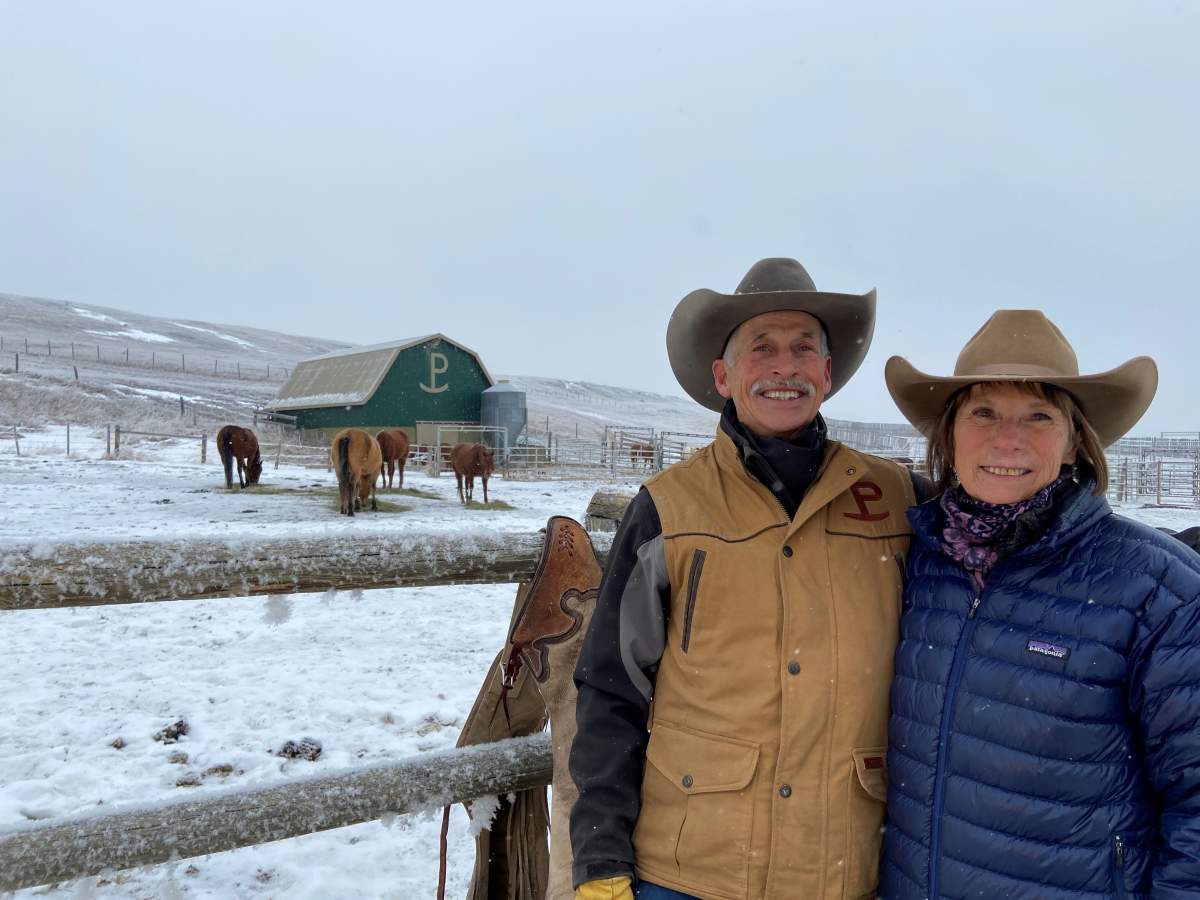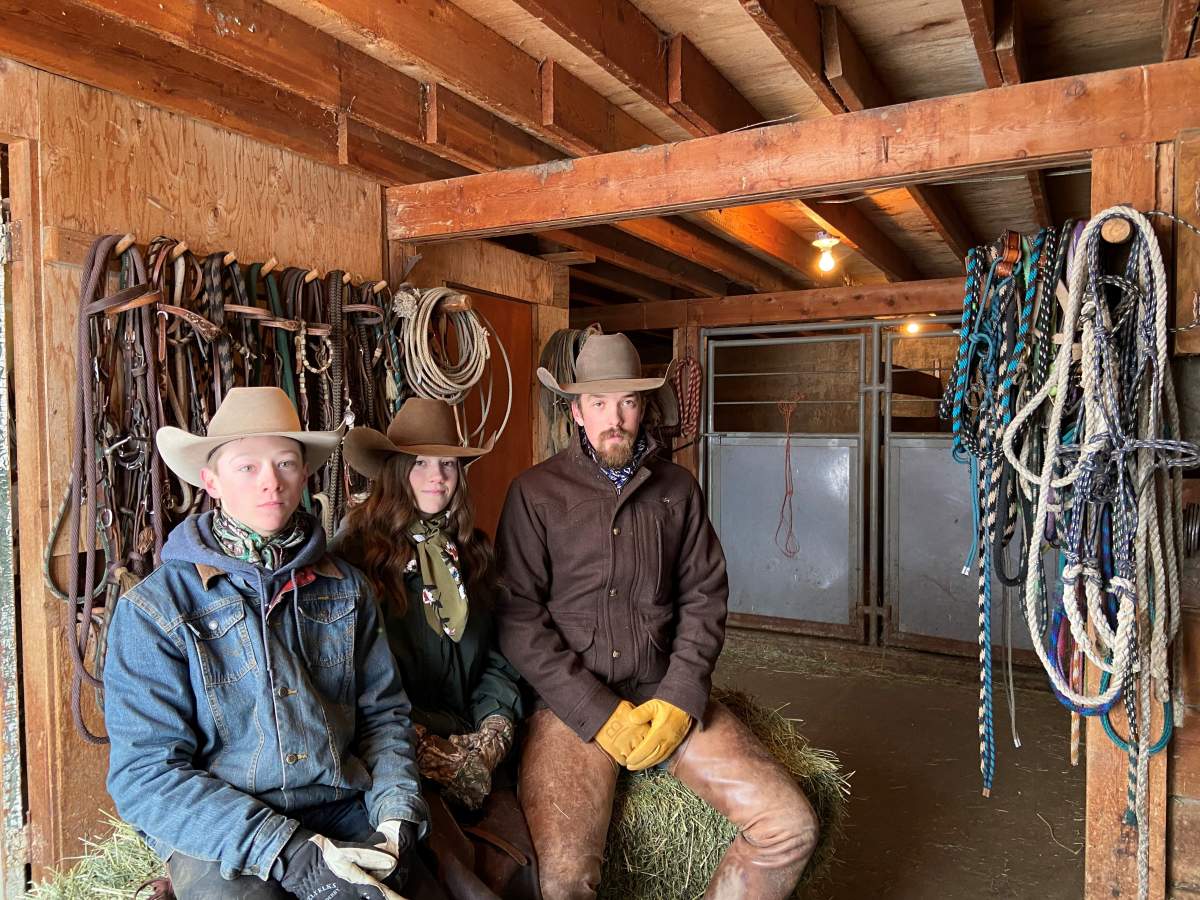The Rocking P Ranch near Nanton has been in the Blades family since 1900. Five generations have called it home. Mac Blades and his wife Renie are the third generation ranchers still working the land.

“It’s not what we do, it’s who we are. Our roots are so deep here,” Renie said.
The homestead on the eastern slopes is now vulnerable to potential coal mining development, after the province of Alberta removed a policy intended to protect it.
It was done without public consultation and the family has launched a judicial review in hopes of getting the policy restored.
“I don’t know how the government doesn’t think they have to listen to the people that are affected,” Mac said.
The process of mining is considered intense. Massive machines remove mountain tops and layers of rock to expose coal seams.
In other coal mines, the waste rock, or rubble, is trucked down into the valley near headwaters of streams and rivers. Selenium in those rocks leaches into the waterways.
Selenium is a naturally-occurring element, but it can be poisonous at higher levels.
- ‘This is overwhelming’: Alberta separatists praise turnout for petition signing
- WestJet will reverse cramped seat configuration after widespread backlash
- Flair Airlines reroutes strategy to lure corporate travellers — without a business class
- Will more Chinese EVs be a ‘self-inflicted wound’ for Canada’s auto sector?
Lars Sander-Green, mining lead for Wildsight, conducts independent testing of waterways throughout B.C.’s Elk Valley, where four mines are in operation. He’s discovered evidence of selenium downstream from the coal mines.
“Right below the mines, we see 100 times what’s considered safe for fish,” Sander-Green said. “Selenium is an invisible threat and it’s huge. We have seen water pollution 400 km downstream into Montana and Idaho. It’s a big impact and it’s long-term.
“The levels we tracked in Koocanusa lake have surprised us. 20 years ago we didn’t see these levels and they’ll keep increasing.”
The families who spoke with Global News are concerned similar pollution will end up in Alberta waterways.
Mac and Renie’s grandchildren are in disbelief. Sixteen-year-old Cole Blades is worried about the area being developed and explored by mining companies.
“I just can’t get it wrapped around my head how it will positively benefit Alberta, in any way,” Cole said.

Get breaking National news
His sister, Janae Blades, said Albertans don’t know enough about what’s at risk.
“This was brought up in my class,” 13-year-old Janae said. “Nobody knew what it was about and everyone didn’t care. I said, ‘Let me tell you why this is important.'”
Stran Schlosser, 22, another grandson of Mac and Renie’s, said he’s disappointed in the provincial government.
“It’s sickening to think our government would throw away our water and land that way,” Schlosser said.
“To think this could the last generation is sickening. I’ve loved the life we live and I hope my kids get to live that life and my kids’ kids.”
He’s hopeful the UCP members are listening.
“I voted for Jason Kenney and the UCP government and I don’t think this is what their voters voted them in to do. In fact, I think it’s the exact opposite,” Schlosser said.
“I spent over 65 years in those mountains and its been such an experience; it’s where our water comes from and it will destroy the economy if they pollute it,” Mac said.
“We’ve lost so many nights’ sleep. We spent way more time trying to stop these mines than we have ranching since June,” Renie said.
“This is hugely important. We will get this stopped.”
Energy Minister Sonya Savage said “she’s been hearing the concerns.”
In a statement to Global News, Savage said, “We have paused coal lease sales in former category two lands, and are cancelling leases that were issued through a public offering.”

The Coal Association of Canada didn’t respond to multiple interview requests by Global News.
But Justin Blades, son to Mac and Renie, said it doesn’t impact the vast majority of coal leases in the eastern slopes.
“I’ve seen maps where they have sold coal lease along that range all the way from the U.S. border to the bow and then there’s a little bit of a gaps in the parks in the category 1 land, but then they pick back up at the head of the Red Deer river — there’s leases they sold there, too. All the major cities’ headwaters are going to be affected,” Justin said.
“It’s a huge chunk of country.”
“The rescission of the 1976 coal policy does not — in any way — allow coal development to go unchecked,” Savage said. “What the Alberta government has adjusted is the process through which industry can acquire coal leases.
“To be absolutely clear, obtaining a coal lease does not permit exploration or development, it only gives a proponent coal rights in that parcel of land.”
Justin, however, wondered why the leases are being granted.
“Why would you buy a lease unless you’re expecting to develop it one day? They are looking at the land because they’re interested in an opportunity,” Justin said.
“Why does the government keep forging ahead? There must be something in it that we don’t know about.”
The Blood Tribe/Kainai is also pursuing a legal challenge against the Government of Alberta. The legal challenge was filed jointly with the Siksika Nation and will be heard by the courts sometime in 2021.
Blood Tribe/Kainai Nation member Latasha Calf Robe said the decision to rescind the coal policy threatens sacred Treaty land.
“This is the land we come from. Our creation stories are rooted in these areas, the stories of how we came to be our language and cultural tradition,” Calf Robe said.
“It’s more than just a mountain, more than just water, it’s part of who we are.”
Nation members said “the government hastily and secretively removed the ban on open pit mining in formerly protected category 2 lands.”
“It sends a clear message, it’s infuriating and makes my blood boil and what they’re really saying is they don’t care, they don’t care about First Nation rights or our cultural preservation and what we stand for as Niitsitapi,'” Calf Robe said.









Comments